When the Air Goes Quiet: Quick Fixes for HVAC Emergencies
Understanding common emergencies helps property owners take appropriate initial actions while awaiting professional assistance.
Sudden HVAC system failures require prompt attention to restore comfort and prevent potential damage. Understanding common emergencies helps property owners take appropriate initial actions while awaiting professional assistance.
No Cooling Response
When cooling systems stop responding, checking basic factors can identify simple solutions. Thermostat settings, circuit breakers, and air filter conditions often affect system operation. Professional HVAC repair services provide emergency response when basic checks reveal no obvious issues.
Complete System Shutdown
Total loss of heating or cooling function may indicate electrical problems. Checking main power switches and circuit breakers represents an important first step. Professional technicians respond quickly to restore system operation while identifying root causes.
Unusual System Sounds
Strange noises often precede major component failures. Shutting down equipment when unusual sounds occur prevents additional damage. Professional HVAC repair specialists diagnose noise sources while implementing appropriate solutions.
Water Leaks
Condensate system problems can create immediate property damage risks. Placing containers under leak points provides temporary protection. Professional emergency services address drainage issues while preventing water damage.
Burning Odors
Electrical or mechanical problems sometimes produce burning smells. Immediate system shutdown prevents potential fire hazards. Professional HVAC technicians identify odor sources while implementing necessary repairs.
Frozen Cooling Coils
Ice formation on cooling components indicates serious system problems. Allowing ice to melt naturally before resuming operation prevents damage. Professional diagnosis addresses the underlying causes of freezing conditions.
No Heat Production
Heating system failures during cold weather create urgent situations. Checking gas supplies and pilot lights may reveal simple solutions. Professional repair services respond rapidly to restore heat while guaranteeing safe operation.
Thermostat Malfunction
Control system failures affect the entire HVAC system operation. Battery replacement often resolves simple thermostat problems. Professional technicians diagnose more complex control issues requiring immediate attention.
Circuit Breaker Trips
Repeated electrical protection activations indicate serious problems. Resetting breakers once provides temporary restoration. Professional HVAC repair addresses underlying electrical issues, preventing repeated trips.
Fan Motor Problems
Failed blower motors eliminate air circulation through buildings. Checking motor power supplies may identify simple solutions. Professional emergency services replace failed motors while maintaining proper system operation.
Gas Odors
Natural gas smell requires an immediate professional response. Evacuating buildings and contacting emergency services guarantees safety. Licensed HVAC technicians locate and repair gas leaks following proper protocols.
Carbon Monoxide Concerns
CO detector activation demands immediate professional evaluation. Ventilating spaces and stopping equipment operation prevent exposure. Emergency HVAC services identify carbon monoxide sources while implementing repairs.
Refrigerant Leaks
Cooling system refrigerant leaks create both performance and environmental issues. Minimizing system operation prevents further losses. Professional technicians locate and repair leaks while restoring proper charge levels.
Air Distribution Problems
Sudden airflow changes may indicate ductwork damage. Checking visible ducts and registers identifies obvious issues. Professional evaluation reveals hidden ductwork problems requiring immediate repair.
Compressor Failures
Cooling system compressor problems require expert attention. Stopping operation when unusual symptoms occur prevents damage. Professional HVAC repair services diagnose compressor issues while implementing solutions.
Control Board Issues
Electronic control failures affect overall system operation. Power cycling sometimes temporarily restores function. Professional technicians replace failed control components during emergency service.
Safety System Activation
Equipment safety controls prevent hazardous operations. Avoiding manual safety bypass maintains protection. Professional HVAC repair addresses underlying problems triggering safety shutdowns.
Filter Restrictions
Severely clogged filters can cause system shutdown. Checking and replacing filters often restores operation. Professional maintenance prevents filter-related emergency situations.
Ignition Problems
Gas furnace ignition failures eliminate heating capability. Checking pilot lights may resolve simple issues. Professional repair services diagnose complex ignition system problems.
Responding appropriately to HVAC emergencies prevents additional equipment damage while protecting building occupants. Professional repair services provide rapid response with proper diagnostic capabilities. Regular system maintenance helps prevent many emergencies through early problem detection.

